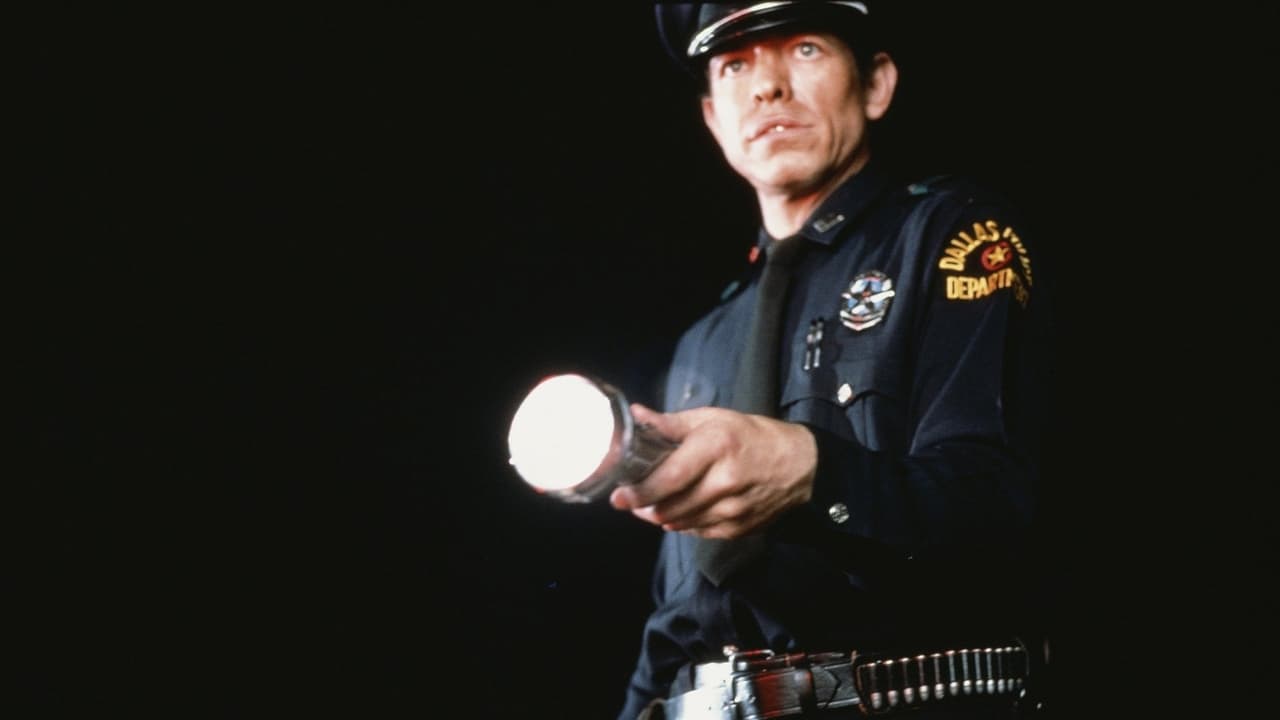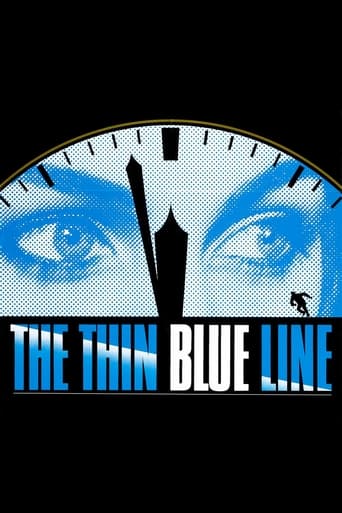

It's nice to know how legal/justice systems can run so badly off the rails.Had this thought: It is now May of 2017, and the U.S. has a "president" who often, on the stump, expressed the supreme value of "winning".This flick shows *exactly* why "winning" can never function as a standalone value. The prosecutor who went after Adams valued winning over all else... certainly over simple justice.I would say that is the moral of the story of The Thin Blue Line. Others will tell you it's about injustice or Due Process short-cutting or an illustration of how the Wild West ain't dead in Dallas. Those things are also true, but you have to understand where those things came from: They came (and likely still come) from an ethos of winning as a supreme value/virtue.I like shaggy dog stories which are extended parables on a simple moral idea, and that's what The Thin Blue Line is. This is Morris's bailiwick. He's passionately interested in finding a kind of universal equation of morality, and TTBL is a stepping stone in this quest.It's a certain kind of product, to be sure. It's a documentary: If you don't like documentaries, don't waste your time. But Morris expertly puts the material together, interlacing it with graphics, establishing shots, and reenactments to make the piece hum with subjective moral urgency. If that sounds like it might redeem the genre, then give it a go. Just be sure you're poised to pay very close attention.This was Morris's first proper, full- length treatment, and my introduction to his work. Took my mom and some buddies to watch it at The Inwood, probably a half a kilometer from where Officer Wood was shot.
... View MoreA film that successfully argued that a man (Randall Dale Adams) was wrongly convicted for murder by a corrupt justice system in Dallas County, Texas.Morris was originally going to film a documentary about prosecution psychiatrist, Dr. James Grigson, known as Doctor Death, who testified in more than 100 trials that resulted in death sentences. In almost every instance, Dr. Grigson would, after examining a defendant, testify that he had found the individual in question to be an incurable sociopath, who it was "one hundred per cent certain" would kill again.This lead Morris to find an example, Adams, where this "incurable sociopath" status was in doubt. But we also still have that critique of Grigson -- we see what he said about Adams, a man with no history of criminal acts or violence, after only fifteen minutes with him.This change in focus lead to a better film, most likely (though Erroll Morris has an incredible track record for good documentaries). We now get to see a wider picture of eyewitness testimony, the prejudice of the area (which includes a thriving KKK) and more.Adams' case was reviewed and he was released from prison approximately a year after the film's release. Now that is the sign of a powerful film, and what makes documentaries so great.
... View MoreErrol Morris is a brilliant writer/director. His documentary style is unique and feels almost clinical. He is a master at sorting through factual information and reconstructing events for the viewer.Randall Adams was caught up in the aggressive, eager-to-kill-anyone justice system in Texas. No American state has killed as many people as Texas. In The Thin Blue Line we witness an out-of-control system which puts people to death so aggressively you wonder how many innocent people who have been murdered by prosecutors in Texas. Since the release of Randall Adams, others have been shown to have been innocent, but Mr. Adams' case shed light on the system which prefers to murder its mistakes rather than admit fault.Not every convict has the advantage of a brilliant filmmaker who takes up his case. Here, the flaws of the case were so glaring and obvious that the state was embarrassed. This is a great documentary. It is influential viewing, and it changed the fate of a poor convict who had was nearly put to death on several occasions.When Mr. Morris puts the case together, we see that the state wanted to kill an innocent man, and they would have succeeded if Errol Morris had not investigated the facts.
... View MoreThis is so powerful and well done! An unbelievable but true story.One of the best documentaries I've ever seen because it makes you both wonder and worry about how the justice system works. How many innocents are caught in the system and how difficult it must be when the authorities refuse to question their own judgment for fear of looking bad.Masterfully edited to hold your attention from start to finish with gripping interviews. Morris knows how to pace things just right. He doesn't belabor points that don't need it but doesn't rush through his interviews.Thank you Errol Morris for opening my eyes and feelings for the (probably many) innocents caught and still not freed. This is what a documentary should be.
... View More